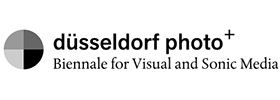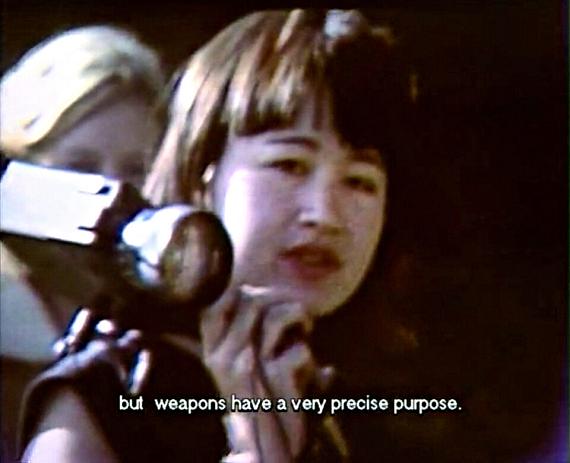
Hito Steyerl: November, 2004, Videostill, einkanalig mit Ton
Courtesy Andrew Kreps Gallery, New York and Esther Schipper, Berlin
© Hito Steyerl, VG Bild-Kunst, Bonn, 2022
düsseldorf photo+
Biennale for Visual and Sonic Media
Akinbode Akinbiyi » Javkhlan Ariunbold » Salma Baccar » Yto Barrada » Bill Beckley » Natascha Borowsky » Adam Broomberg » Gino Bühler » Astrid Busch » Talia Chetrit » Natalie Czech » HG Esch » Jonathan Forsythe » Samuel Fosso » Mario Garcia Torres » David Goldblatt » Martine Gutierrez » Shadi Habib Allah » Jana Hartmann » Barbara Kasten » Aino Laberenz » Estefanía Landesmann » Alwin Lay » Mischa Leinkauf » Helmar Lerski » Dana Levy » Man Ray » Chris Marker » Marge Monko » Angelo Novi » Dieter Nuhr » Frida Orupabo » Wolfgang Plöger » Laure Prouvost » Walid Raad (The Atlas Group) » Thomas Ruff » Larissa Sansour » Matthias Schaller » Hito Steyerl » Mikhail Tolmachev » Claudia van Koolwijk » Christoph Westermeier » David Wojnarowicz » Marta Zgierska » & others
Festival: 13 May – 19 Jun 2022
Thu 12 May 18:00
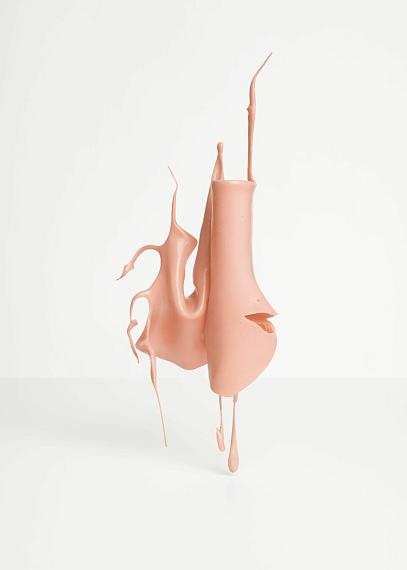
Marta Zgierska: Afterbeauty IV, 2018, Pigmentdruck auf Dibond © Marta Zgierska
düsseldorf photo+
Biennale for Visual and Sonic Media
45 Participating Institutions, Galleries and Fringe Venues
13 May – 19 June 2022
Opening "THINK WE MUST": Thursday, 12 May, 6 pm
Opening weekend:
Friday, 13 May, 2-8 pm
Saturday, 14 May, 12-6 pm
Sunday, 15 May, 12-6 pm
The second düsseldorf photo+ Biennale for Visual and Sonic Media opens on 13 May. Featuring over 50 exhibitions and a wide range of accompanying events, the participating Düsseldorf art institutions, galleries and fringe venues collectively offer an insight into the issues and debates current within the world of photography and time-based media.
The keynote exhibition, Think We Must, curated by Pola Sieverding and Asya Yaghmurian opens on 12 May at the Akademie Galerie on Burgplatz and plays a pivotal role thematically within the Biennale. Featuring works by Frida Orupabo, Walid Raad, Hito Steyerl, David Wojnarowicz and others, the exhibition examines how reality, history and a dispositional analysis of society can be constituted and altered when thought is based around photographic images.
The Biennale will be accompanied throughout its run by a comprehensive programme of panel discussions, talks and workshops, including a roundtable debate, with discussants Vivien Trommer, Akinbode Akinbiyi, Aino Laberenz and Max Jorge Hinderer Cruz, on 14 May at K21 at the Kunstsammlung Nordrhein-Westfalen on curating and art education as a means of interrogating power.
The Julia Stoschek Collection places a spotlight on the work of the Turner Prize-winner, Laure Prouvost, with screenings interrogating the intimate relationship between language, image and perception. At Düsseldorf University, Professor Mareike Foecking’s students investigate how artistic production can make a contribution to societal knowledge and the nature of the framework of rules within which it operates. The film programme, Imagi(ni)ng Otherwise, at the Bambi Filmstudio, features culturally critical films dealing with global racist and gender-based power structures by film-makers, including Salma Baccar, Larissa Sansour, Chris Marker and others.
Angelo Novi believes that film and photography are an ideal match. Novi worked as a set photographer on the socially critical films of Pier Paolo Pasolini, amongst others. His work is on show at the Galerie Rupert Pfab alongside that of Astrid Busch, which features cross-media glimpses of Istanbul. Linn Lühn invites us to rethink Man Ray’s classic photographic art and its sensitive relationship between photographer and model. Two visual series by Thomas Ruff at the Konrad Fischer Galerie cast a light on political propaganda. Talia Chetrit’s work, on show at the Galerie Sies + Höke, takes power, sexuality and role models as its subject matter. Marge Monko’s photographs at the Galerie COSAR focus on a critique of consumerism, looking at the shop window as a point of intersection between desire and acquisition. Petra Rinck presents a group show around the subject of the digitalisation of sound and image. Gino Bühler’s exhibition at Schönewald Fine Arts places a focus on awareness of vegetation growing on the periphery of urban spaces.
The pool, a fringe venue sited in the unusual surrounds of a renovated swimming baths, shows the experimental works of students of Kunstakademie Düsseldorf professor, Koenraad Dedobbeleer, alongside projections by Deniz Saridas. Le Bureau provides an exciting 1970’s architectural backdrop for Alwin Lay’s installations and photographic work, which overlay the charged issues around questions of identity onto everyday objects.
Participating institutions: Akademie Galerie / Bambi Filmstudio / Filmwerkstatt Düsseldorf / Hetjens – German Ceramics Museum / University of Düsseldorf / Institut Français Düsseldorf / IMAI – Inter Media Art Institute / Julia Stoschek Collection / K21 Kunstsammlung Nordrhein-Westfalen / Kunstarchiv Kaiserswerth / Kunsthalle Düsseldorf / NRW-Forum Düsseldorf / Polish Institute Düsseldorf / Stadtmuseum Düsseldorf
Participating galleries: boa-basedonart / Coelner Zimmer / COSAR / Art Edition Fils – Galerie im stilwerk / Konrad Fischer Galerie / Kadel Willborn / Kunst & Denker Contemporary / Galerie Bernd A. Lausberg / Linn Lühn / Galerie Hans Mayer / Galerie Ute Parduhn / Galerie Rupert Pfab / Petra Rinck Galerie / SCHÖNEWALD / SETAREH X / Sies + Höke / Galerie Franz Swetec / VAN HORN / wildpalms
Fringe venues and project spaces: Baustelle Schaustelle Düsseldorf / Le Bureau / LA CHAMBRE / NAILS projectroom / Nidus Kosmos / NKR – Neuer Kunstraum / Julia Ritterskamp / Ross 31 – Räume für die Kunst / SAUVAGE / STUDIO FOR ARTISTIC RESEARCH / the pool / 701 e.V.
düsseldorf photo+ is an initiative that originated on the Düsseldorf arts scene. It is built on a conviction that photographic and media-based art, in the form of digitalisation and artificial intelligence, can help explain, and make visible, changes in the media and society, and can allow for a critical examination and aesthetic experiencing of them. The Biennale is organised in a decentralised manner and places a focus on time-based media, also offering a comprehensive overview of Düsseldorf’s contemporary art scene.
Further information: www.duesseldorfphotoplus.de
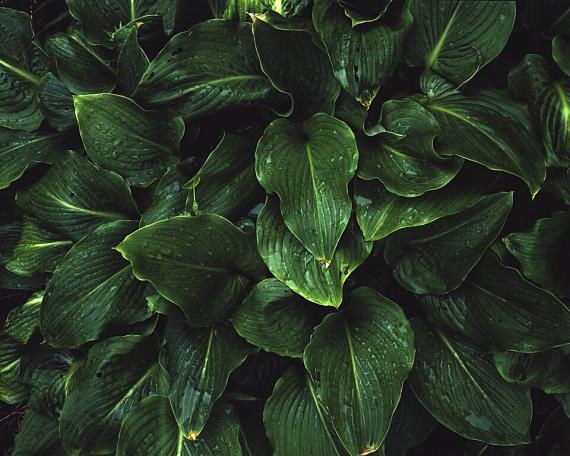
Gino Bühler: Botanischer Garten 1, Düsseldorf, 2020
© Gino Bühler
düsseldorf photo+
Biennale for Visual and Sonic Media
45 teilnehmende Institutionen, Galerien und Off-Spaces
13. Mai bis 19. Juni 2022
Eröffnung "THINK WE MUST": Donnerstag, 12. Mai, 18 Uhr
Eröffnungswochenende:
Freitag, 13. Mai, 14–20 Uhr
Samstag, 14. Mai, 12–18 Uhr
Sonntag, 15. Mai, 12–18 Uhr
Ab dem 13. Mai findet die zweite Ausgabe der düsseldorf photo+ Biennale for Visual and Sonic Media statt. Mit über 50 Ausstellungen und zahlreichen Veranstaltungen geben die teilnehmenden Institutionen, Galerien und Off-Spaces der Düsseldorfer Kunstszene Einblick in aktuelle Fragestellungen und Themen rund um Fotografie und zeitbasierte Medien.
Die von Pola Sieverding und Asya Yaghmurian kuratierte Hauptausstellung Think We Must steht thematisch im Zentrum der Biennale und eröffnet am 12. Mai in der Akademie-Galerie am Burgplatz. Mit Werken von Frida Orupabo, Walid Raad, Hito Steyerl, David Wojnarowicz u. a. geht die Gruppenausstellung der Frage nach, wie durch das Denken mit fotografischen Bildern Wirklichkeit, Geschichte und gesellschaftliche Dispositive konstituiert und verändert werden können.
Die Biennale wird außerdem über den gesamten Zeitraum hinweg von einem umfangreichen Rahmenprogramm mit Panels, Talks und Workshops begleitet, darunter ein Roundtable zu machtkritischem Kuratieren und Vermitteln mit Vivien Trommer, Akinbode Akinbiyi, Aino Laberenz und Max Jorge Hinderer Cruz am 14. Mai im K21 Kunstsammlung Nordrhein-Westfalen.
Die Julia Stoschek Collection widmet sich mit Screenings den Werken der Turner-Preisträgerin Laure Prouvost, die das vertraute Verhältnis von Sprache, Bild und Wahrnehmung in Frage stellen. An der Hochschule Düsseldorf untersuchen Studierende der Professorin Mareike Foecking, wie künstlerische Produktion zu gesellschaftlicher Erkenntnis beitragen kann und welchen Regeln sie folgt. Das Filmprogramm Imagi(ni)ng Otherwise zeigt Gegenentwürfe zu globalen rassistischen und geschlechtsbezogenen Machtstrukturen, mit Filmen von Salma Baccar, Larissa Sansour, Chris Marker u. a. im Bambi Filmstudio.
Für die kongeniale Beziehung zwischen Film und Fotografie steht Angelo Novi, der als Setfotograf die gesellschaftskritischen Filme von Pier Paolo Pasolini u. a. begleitete und neben Astrid Busch und ihren intermedialen Spuren Istanbuls in der Galerie Rupert Pfab zu sehen ist. Linn Lühn lädt ein zu einer Revision klassischer Fotokunst Man Rays, die das sensible Verhältnis Fotograf und Modell betreffen. Politische Propaganda beleuchtet Thomas Ruff mit zwei Bildserien in der Konrad Fischer Galerie. Macht, Sexualität und Rollenbilder thematisiert Talia Chetrit in der Galerie Sies + Höke. Marge Monko widmet sich mit ihren Fotografien in der Galerie COSAR konsumkritisch dem Schaufenster als Schnittstelle zwischen Begehren und Aneignen. Petra Rinck stellt verschiedene künstlerische Positionen vor, mit denen die Digitalität von Sound und Bild in den Fokus rückt. Sensibilität für die Pflanzenwelt in Randbereichen urbaner Räume weckt Gino Bühler bei Schönewald Fine Arts.
In der ungewöhnlichen Location eines umgebauten Schwimmbeckens zeigt der Off-Space the pool experimentelle Arbeiten von Studierenden der Klasse Koenraad Dedobbeleers an der Kunstakademie Düsseldorf, neben Projektionen von Deniz Saridas. Einen spannenden architektonischen Kontext der 1970er Jahre bietet auch Le Bureau mit installativen und fotografischen Arbeiten von Alwin Lay, die virulente Identitätsfragen auf alltägliche Objekte übertragen.
Teilnehmende Institutionen: Akademie-Galerie / Bambi Filmstudio / Filmwerkstatt Düsseldorf / Hetjens – Deutsches Keramikmuseum / Hochschule Düsseldorf / Institut Français Düsseldorf / IMAI – Inter Media Art Institute / Julia Stoschek Collection / K21 Kunstsammlung Nordrhein-Westfalen / Kunstarchiv Kaiserswerth / Kunsthalle Düsseldorf / NRW-Forum Düsseldorf / Polnisches Institut Düsseldorf / Stadtmuseum Düsseldorf
Teilnehmende Galerien: boa-basedonart / Coelner Zimmer / COSAR / Art Edition Fils – Galerie im stilwerk / Konrad Fischer Galerie / Kadel Willborn / Kunst & Denker Contemporary / Galerie Bernd A. Lausberg / Linn Lühn / Galerie Hans Mayer / Galerie Ute Parduhn / Galerie Rupert Pfab / Petra Rinck Galerie / SCHÖNEWALD / SETAREH X / Sies + Höke / Galerie Franz Swetec / VAN HORN / wildpalms
Teilnehmende Off-Spaces und Projekträume: Baustelle Schaustelle Düsseldorf / Le Bureau / LA CHAMBRE / NAILS projectroom / Nidus Kosmos / NKR – Neuer Kunstraum / Julia Ritterskamp / Ross 31 – Räume für die Kunst / SAUVAGE / STUDIO FOR ARTISTIC RESEARCH / the pool / 701 e.V.
düsseldorf photo+ ist eine Initiative, die in der Düsseldorfer Kunstszene ihren Ursprung hat und mit der Überzeugung einher geht, dass foto- und medienbasierte Kunst den medialen und sozialen Wandel, im Zeichen von Digitalisierung und Künstlicher Intelligenz, für die kritische Auseinandersetzung und ästhetische Erfahrung greifbar und sichtbar machen kann. Die dezentral organisierte Biennale setzt einen Schwerpunkt auf zeitbasierte Medienkunst und bietet zudem eine Bestandsaufnahme der aktuellen Düsseldorfer Szene.
Weitere Informationen: www.duesseldorfphotoplus.de
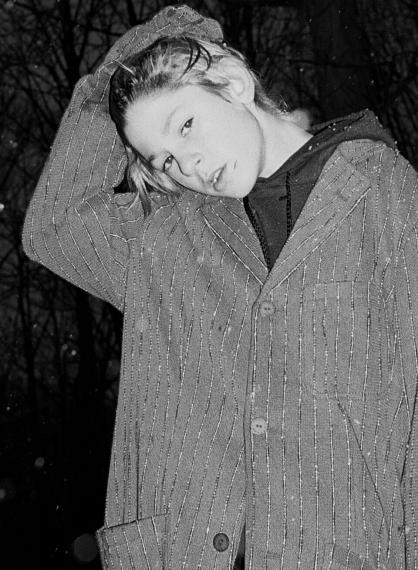
© Talia Chetrit
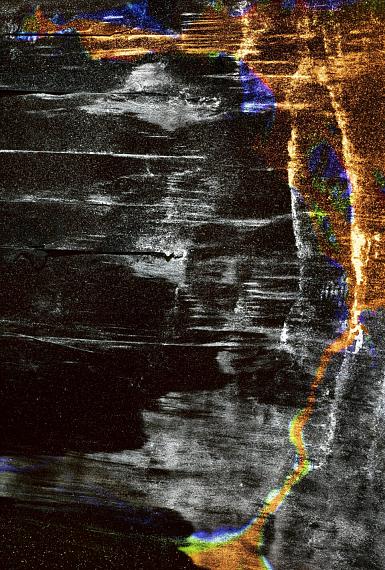
Astrid Busch: Viking Venus #03, 2022, Archival Pigment Print, 74 x 50 cm
© Astrid Busch
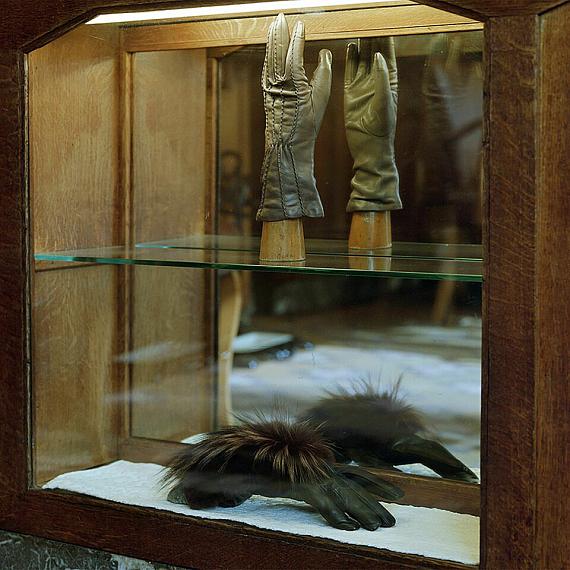
Marge Monko: Antwerpen, Boon, 2014, C-Print, 60 x 60 cm
© Marge Monko
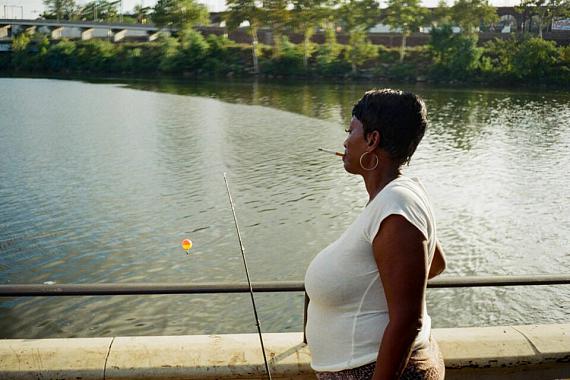
Jonathan Forsythe: Loraine, Philadelphia, Pennsylvania, 2017
© Jonathan Forsythe, 2019 (Kaput Publishing)
